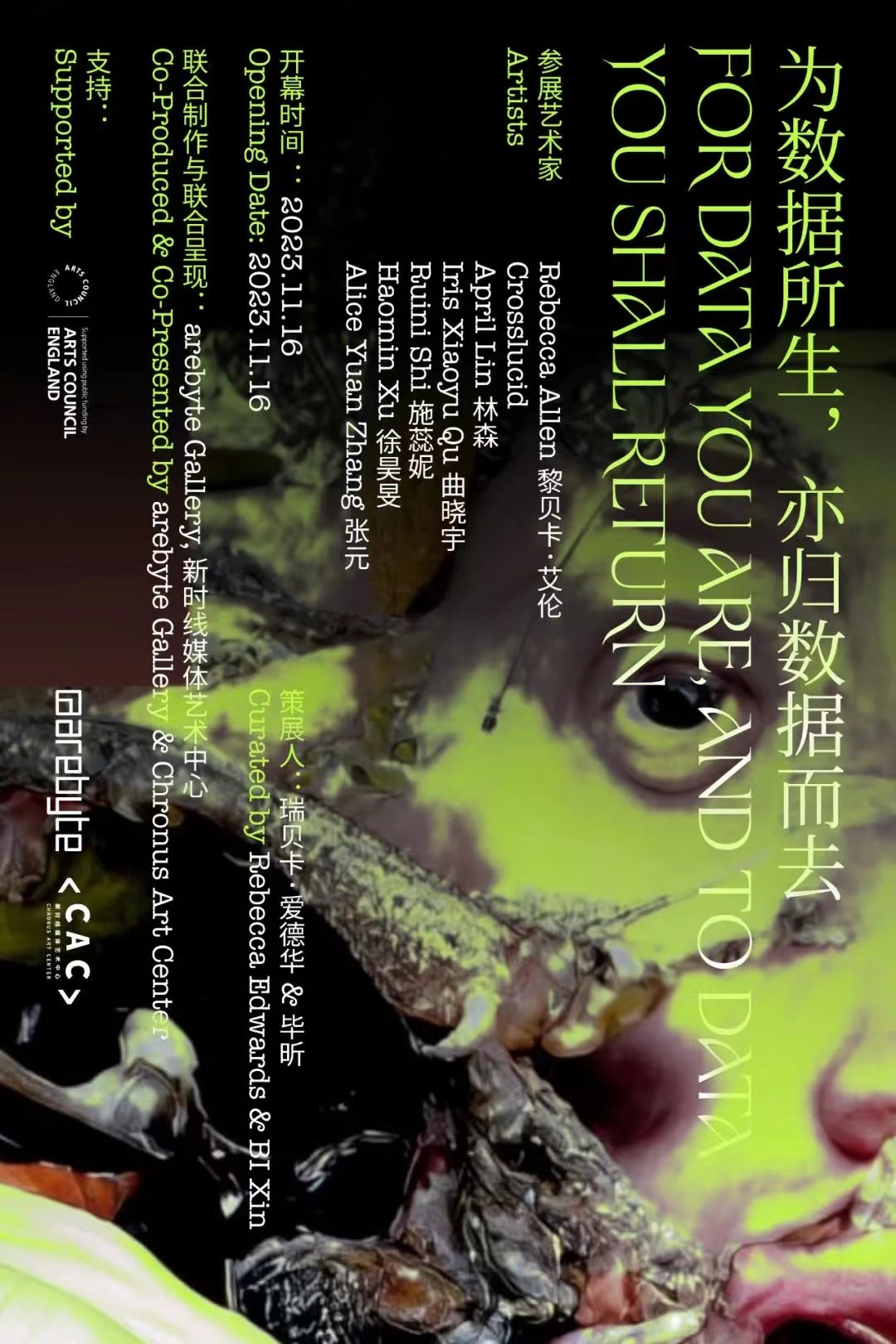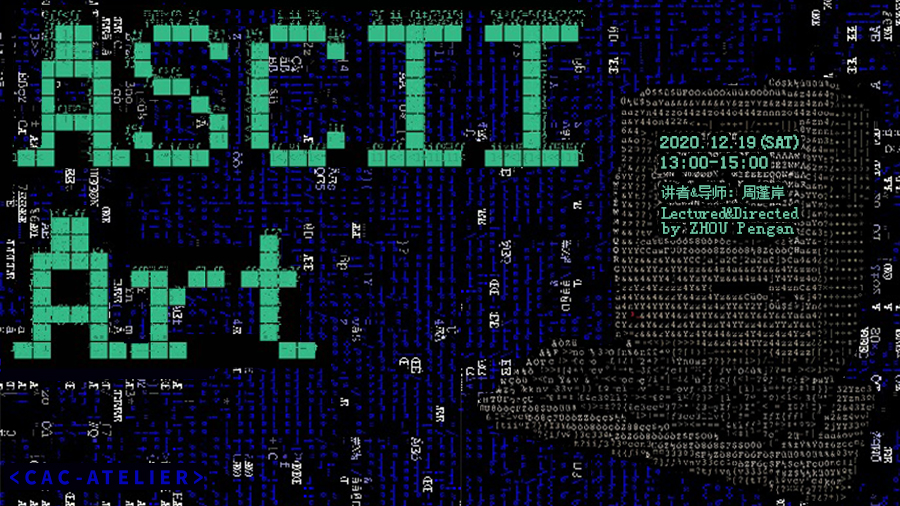There Is No Perfect Spell
2023.9.14 – 2023.11.1
Co-presentation with We=Link, an online exhibition platform initiated by CAC, and virtual.hek.ch, a new digital exhibition and social space under the framework of Transformationsprojekt
ARTISTS
0xSalon, Cullen Miller & Gabriel Dunne, Ilja Karilampi, Lauren Huret and LI Hanwei
CURATED BY
BI Xin
EXHIBITION WEBSITE
http://we-link.chronusartcenter.org
CO-PRESENTED BY
Chronus Art Center
HeK (House of Electronic Arts)
ONLINE VERNISSAGE
2023.9.14 Thursday
18:00-19:00 Beijing Time
12:00-13:00 in Basel
With the support of Pro Helvetia Shanghai, Swiss Arts Council

Chronus Art Center (CAC) is pleased to announce the presentation of There Is No Perfect Spell, the third iteration of We=Link, in collaboration with HeK and co-presented on virtual.hek.ch. Featuring artists and artist collectives 0xSalon, Cullen Miller & Gabriel Dunne, Ilja Karilampi, Lauren Huret and LI Hanwei, the exhibition will be on view on both We=Link and virtual.hek.ch from September 14th, 2023 through November 1st, 2023.
The alienated crypto culture features certain occult overtones. From blockchain Evangelists to DAO Summoners, from Oracles, which are hybrid smart contracts that bridge and interoperate on-chain codes and off-chain infrastructures, to Sybil Attacks, which aim to gain the majority influence in the network by simultaneously operating multi-falsified identities on single nodes, thus further undermining the authority or power in reputable systems; even Satoshi Nakamoto, who published Bitcoin: A Peer-to-Peer Electronic Cash System, is a mysterious being with an unknown identity. Tokens act as the social contract of spiritual identities in order to enforce native incentives and governance, while NFTs, as the new subzeitgeist totems, represent the spirit of crypto culture.
At the technical level, crypto technologies also lurk in the shadows of dark associations. The Internet and cryptographic technologies have gradually evolved from weapons of war to computer science, but in practice, they maintain the appearance of a varied "dark" form - complex code and obscure technical logic sealed behind friendly interfaces for which their purpose remains ambiguous. Has the popularity of encryption brought a wider sense of transparency and security to society, or has it merely created a greater divide, more ubiquitous surveillance, and a new class of monopoly? "As we shall see, more tech breeds more encryption, and with it, Mehr Dunkelheit," 1 as curator and art historian Nadim Samman states, the encrypted body is gloomy and treacherous, containing paradoxes, while preserving poetic aesthetic imaginary.
There Is No Perfect Spell is an exhibition that explores occult knowledge, transmuted ideologies, and the subzeitgeist of blockchain-related creation, emerging one's self in the darkness, entangled with ancient languages, mythological figures, rituals, symbols, and pixels, becoming the meta-spirit indwell in the Ether. Peering into the tenet of distributed technologies, what shall you scry from such a transparent yet cloudy orbuculum? A dream? A hope? Or a forever externalizing indifferent entropy engine?2 Does it prophesy another enchanted revelry? Or a crypto winter all over again? Perhaps, there is no perfect spell. The problem created by blockchain, as dramatized by Bitcoin and as James Bridle mentioned, "is fundamentally inseparable from the political situation from which it emerged: the eternal battle between power structures and individual rights."3 How can we imagine a fairer society for the wider population when programming, re-inventing, hacking, and rebooting are the privileges of only a small group of individuals? Does shared faith matter when more power is returned to the individual? Can we tolerate the collapse of the planet's ecology for the sake of an immaculate Bit-lief? Nevertheless, does the necessity for ecological balance even matter for people who can resist the encroachment of totalitarian politics on individual power through crypto/distributed technology? Sacrifices accompany the creation of a spell. Perhaps more important than asking what we desire from technology is to challenge ourselves deep within our hearts - what we can, or we are willing to, and what we can afford to sacrifice.
1. N. Samman, Poetics of Encrption, Art and the Technocene, Berlin: Hatje Cantz Verlag, 2023.
2. W. Alsindi and D. Breitling, the expression is inspired by Wassim Alsindi's interview with Dustin Breitling, [online]. Available: https://diffractionscollective.org/an-entropy-engine-forever-externalising-w-wassim-alsindi/.
3. J. Bridle, “Introduction,” in The White Paper, by S. Nakamoto, with a guide by J.K. Brekke, London, Ignota, 2019, p. xxii.
<CO-PRESENTED BY>

HEK (House of Electronic Arts) in Basel is Switzerland's national competence centre for contemporary media art and digital cultures. Since 2011, the institution has been central to the creative and critical discourse on the aesthetic, socio-political and economic effects of media technologies. As a platform for contemporary art that explores and employs new technologies, HEK promotes aesthetic practices related to information technologies. This not only enables a better comprehension of the changing world we live in, but also serves to actively engage with these processes and confront pressing questions of 21st century culture, while actively contributing to their mediation. In addition to its event, exhibition and mediation activities, HEK is concerned with collection methodology and the preservation of digital art.

Chronus Art Center (CAC) was established in 2013 and is China's first nonprofit art organization dedicated to the presentation, research/creation and scholarship of media art. With its exhibitions, residency-oriented fellowships, lectures and workshop programs and through its archiving and publishing initiatives, CAC creates a multifaceted and vibrant platform for the discourse, production and dissemination of media art in a global context. CAC is positioned to advance artistic innovation and cultural awareness by critically engaging with media technologies that are transforming and reshaping contemporary experiences. CAC brings to the public awareness of the impending post-human reality and the resulting social and political implications by accentuating the dynamic synergy of art and science as a response to the challenges and opportunities that contemporary media society has given rise to.




